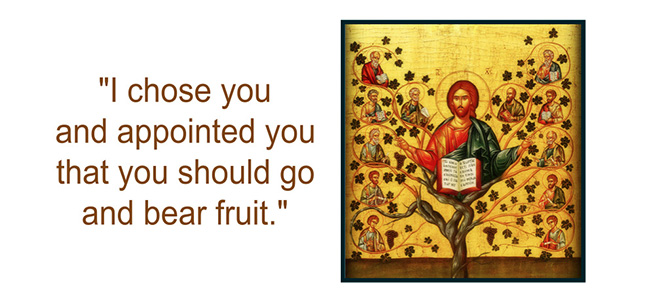
Why do bad things happen to good people?
Many are asking this nowadays. Why must a successful businessman of twenty years close up shop? Why do graduates with good grades struggle to find jobs? Why are senior citizens — who worked hard all their lives — now squeezed financially? Anyone who tells you they have the absolute answer to these Whys would be lying. Human troubles are not something to be speculated about casually. When it comes to suffering, we tread on sacred ground. But suffering also has a power to push the human spirit into exploring questions of meaning and purpose. It is generally in hard times that we ask "What is God thinking?" and so begin to open up to higher realities.
Time for a new Job
One of the great figures of the Old Testament is the righteous prophet Job. Job suffered terrible things: financial loss, of course, but even worse, loss of health, of reputation, and of loved ones. Several "friends" stepped forward to comfort Job by explaining why these bad things happened. Their words were salt in the wound (mixed with lemon juice and vinegar!). Job rejected their pat answers and demanded that the Lord explain Himself. God finally does show up, but Job isn't given a reason. For the Why is not what Job's soul ultimately needs. Instead, it is Job's direct experience of God that changes him (Job 42:1-6). It alters his outlook, his values, his sense of what's truly important. The experience changes Job's sense of who he is, in a way that goes beyond the power of words to explain. Suffering can be like a sacrament, a mystery of transformation that defies definition, that must be lived to be understood. Through those painful events, something in Job died and was born anew for God.
Grape Expectations
This is just how Jesus Christ speaks of suffering in His famous Parable of the Vine in John 15. "I am the vine, and my Father is the gardener. He cuts off every branch that bears no fruit, while every branch that does bear fruit He prunes, so that it will be more fruitful." Maybe this passage resonates with you as you work on your garden: trimming down raspberry canes and pinching back tomato plants. If plants have feelings, then pruning must hurt! But … pruning makes the plant put its energy into bearing fruit. In the end, it is the pruned plant which accomplishes the gardener's plans. We as Orthodox Christians are branches on the grapevine that is Jesus Christ. Which branches have it the easiest? The ones that bear lots of grapes? Or the ones that just do their own thing, soaking up sun and rain, but yielding only leaves? Jesus tells us that pruning—the painful, repeated, unwelcome pruning—happens to the good branches, to the best branches. These get the knife so that they bring forth all the more fruit for the joy of the vineyard's Master. The lazy, unfruitful branches? They get lopped off, cast into brush pile, and burned. Why do bad things happen to nice Christian people? Sometimes it is so that through a reassessment of their values, their purpose … their very selves … they can become even more fruitful for God. Weren't they fruitful already? Yes, but the Heavenly Horticulturist sees in them the potential for even greater fruitfulness. So it was for the prophet Job in ancient times, and so may it be for us today.
Sweet Wine… Not Bitter Whining
What kind of fruit is God looking for in the well-pruned soul? Saint Paul tells us (Galatians 5:22-23): love, joy, eace, patience, kindness, goodness, faithfulness, self-control. It's a paradox, really. It is in undergoing evil, hateful things that some people grow to be more loving, joyful, peaceful, patient, forgiving, and so on. Others, of course, respond to suffering by growing more bitter, spiteful, and mean. What makes the difference? Jesus Christ—His life, His teachings, His Church. Grafted into Him, we learn to respond constructively to suffering. And so one more fruit of a well-pruned soul is gratitude towards God, leading to thoughtful, proportionate, meaningful gifts to the Church—gifts that reflect our transformed sense of values. We call this stewardship, and in a world of givers and takers, it is the ones who suffer most who tend to be the most grateful and generous givers. Chosen and Appointed Life in Christ is never a bed of roses. He promised pruning. But if we respond to the Gardener's tending as fruitful branches, yielding the sweet wine of virtue, we have the joy of knowing that He chose and appointed us to go and bear fruit—in good times, in bad times, and in eternity.
Fr. Mark Sietsema
Consider…
How overextended are you? How can you simplify your life – cutting back so that you are able to invest time and energy and resources into bearing good fruit according to God's will? God the Vinedresser will prune our lives to help us bear better fruit.
Pray…
Lord, abide more fully in me. Help me to prune and manage my life better. Re-shape my living to bear good fruit that glorifies you.
Act…
Make a list of areas in your life that are overgrown. Prune back where you are able in order to free up time and resources to invest in bearing more fruit. Become a prudent manager (steward) of God's gifts, protecting and growing them in order to return to God that which He has entrusted to you. |
![]() |
Help your church to continue its mission, support your church through the Stewardship program!
Donations can be made to the church office directly, or electronically through PayPal using a credit card (click on the donate button below).
Please note that PayPal deducts a processing fee of 2.2% from your transaction.
Thank you and God bless! |

